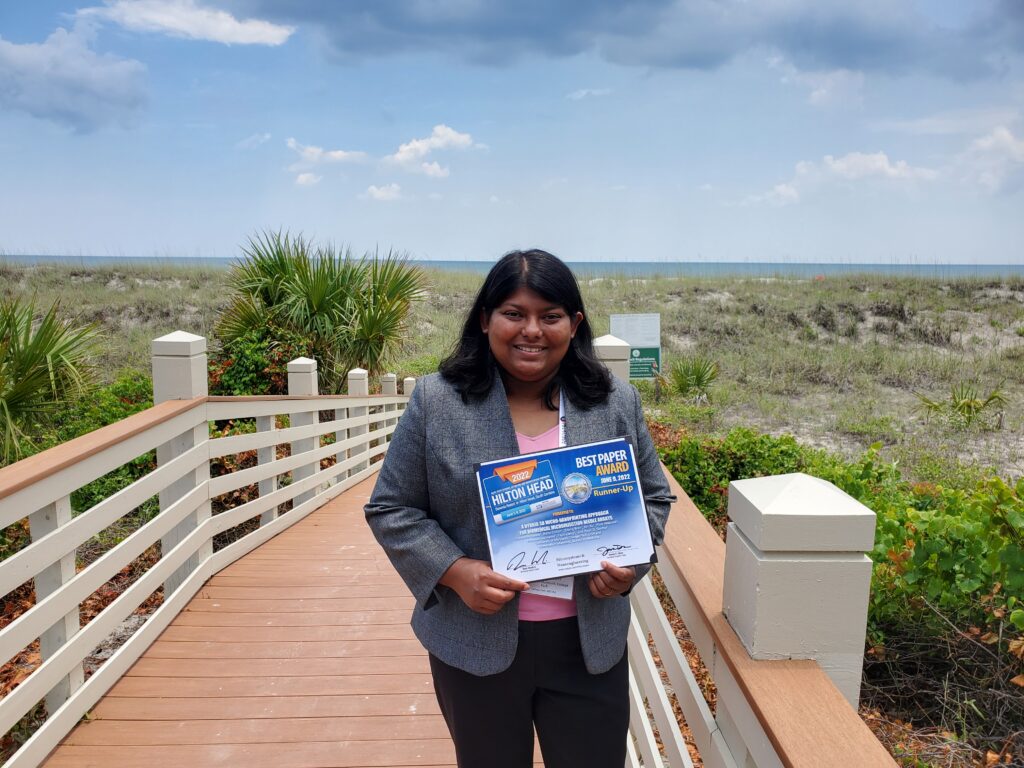Principal Investigator

Dr. Sunandita Sarker is the Director of THEAM lab and an upcoming assistant professor of Mechanical engineering at University of Massachusetts Amherst. Currently, she is a Post-Doctoral Associate at the University of Maryland, College Park (UMD) and she will officially start at UMass Amherst from Fall 2024. Her accomplishments earned her the “Maryland Robotics Center’s Post-Doctoral Fellowship” from the Institute for Systems Research, an interdisciplinary research unit within the A. James Clark School of Engineering at UMD. Dr Sarker’s work is focused on solving complex biomedical device challenges using advanced AM techniques at the intersection of micro/nanoscale engineering. Dr. Sarker explores additive manufacturing (or “3D printing”) strategies to resolve engineering challenges with architecturally sophisticated geometries and complex functionalities for healthcare. In addition to her research, Dr. Sarker is dedicated to mentoring others, which is evident through her mentorship of over 25 student researchers during her graduate school and Post-Doctoral program. She has also designed and taught an undergraduate course, “MECH 488 Kinematics and Machine Design Laboratory,” at the University of Nebraska Lincoln. Currently, she is a guest lecturer for the ENME416: Additive Manufacturing course at UMD. Dr. Sarker’s accomplishments demonstrate her exceptional commitment to both research and mentoring and highlight her potential for future success in the field of biomedical device engineering. Before joining UMD, Dr. Sarker finished her Ph.D. from the University of Nebraska Lincoln (UNL) and her undergraduate degree in mechanical engineering from Bangladesh University of Engineering and Technology (BUET).
Dr. Sarker’s work in 3D micro/nanoprinting aims to revolutionize the medical industry by enabling the creation of highly precise and personalized nanostructures for healthcare applications. Her recent work involves developing novel microinjection technologies with previously unachievable high-aspect ratio and anti-clogging features for various applications, including stem cell therapy to treat neurodegenerative diseases. Her research experiences at UNL encompass various experimental, computational, and statistical methods for device design, manufacturing, and optimization. Her contribution has focused on designing and optimizing a novel atraumatic local drug delivery catheter (U.S. Patent, US20200179643A1) for the targeted treatment of coronary atherosclerosis utilizing experimental and computational methods and various non-invasive and minimally invasive medical devices, including macromolecule biologics delivery devices, swallowable capsule robots, and soft robots designed for extreme environments .
